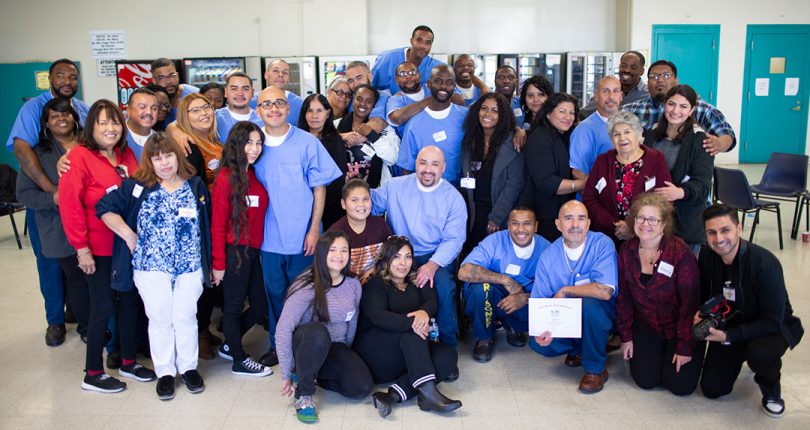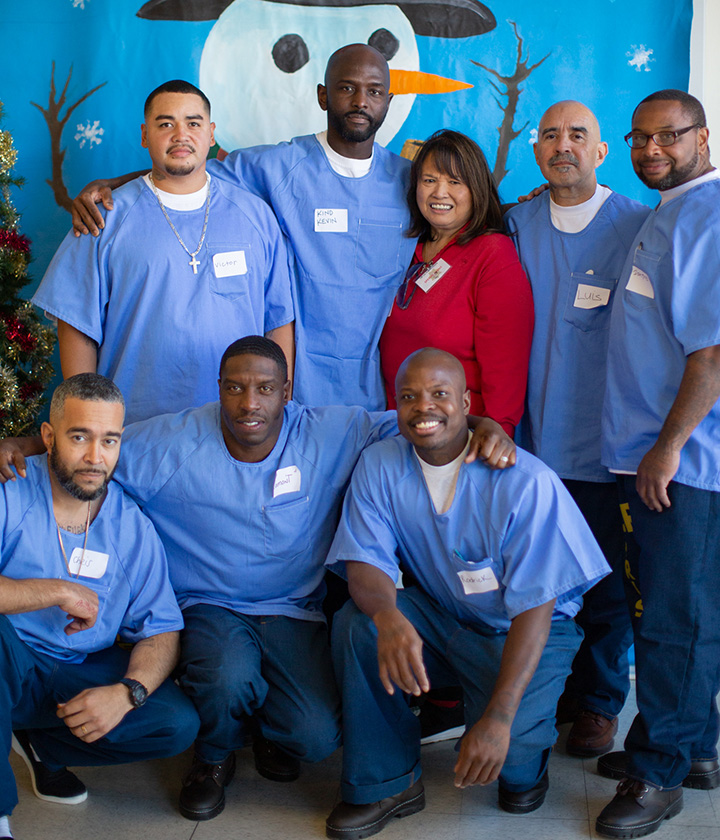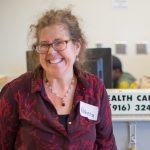by Rebecca Weiker
I awaken every morning in this era of COVID-19 with a feeling of disorientation. While the pandemic is unprecedented, this feeling is not unfamiliar.
In 1992, my oldest sister Wendy, a therapist at a mental health clinic, was murdered by a patient. In the weeks and months afterward, every morning when I awoke there was a split second of blissful unawareness combined with confusion before reality percolated into my consciousness.
For many years, I wasn’t able to shed this feeling of dislocation. Then, twelve years ago, I had the opportunity to meet other victims and incarcerated people through a restorative justice program. Restorative justice, for those unfamiliar, seeks to transform our criminal justice system from one based on punishment to one that strives to meet the needs of everyone impacted by violence. The goal is to create healing and prevent future harm.
Being a restorative justice facilitator has helped me find direction and make sense of my life.
My work takes me to prisons throughout California where I witness profound healing.
Here’s just one example: A mother whose son’s murder had gone unsolved for twenty years told her story to a group of men serving life sentences.
She shared the ways that her life was impacted by this profound loss. And, for the first time, she heard words of genuine apology and remorse, although the men who apologized hadn’t personally caused her harm.
An experience that had been her private sorrow became imbued with the power to change lives.
When those with whom I work and I learned a pandemic was spreading throughout our nation, we recognized it would inevitably find its way through the metal gates of California’s prisons. At first, the California Department of Corrections limited rehabilitative programs. Then doors were closed altogether to everyone except staff.
Our work, based on proximity, has been upended.
The last time we met with our group, we promised that if the coronavirus kept us away, we would continue our work together through letter-writing, until we are able to return.
The men in our group live closely together, in conditions that allow nothing that comes close to social distancing. Many are elderly or have health challenges or both. Our current class includes a man who just had open-heart surgery, and another who is sixty-five years old.
The last time we were together, as we said goodbye, the question that was left unanswered was this: When the virus enters the prison, will they be able to treat those who become ill, and keep the many elderly and infirm people safe in a prison system that is at 130% of capacity?
We spend over thirteen billion dollars a year on this system in the name of public safety. In this time of pandemic, where our hospitals lack respirators, masks, and intensive care beds, the cost of our failure to create a criminal justice system focused on rehabilitation rather than punishment will be borne by the most vulnerable, both inside and outside of prison.
We have long tolerated the mass incarceration and over-sentencing that has wasted the lives of so many people who otherwise would have had so much to contribute to their families and communities. We know what counters these scourges: investment in education, jobs, hope, and policies that counter the systemic oppressions that cut off so many people from a safe and sustainable life.
I have repeatedly been surprised that so many incarcerated people have asked me if I have read Viktor Frankl’s, Man’s Search for Meaning. In his classic book, Frankl, a Holocaust survivor, and psychiatrist explains that even though suffering is inevitable, we always have the freedom to choose how to respond to it. He argues that in finding meaning we can also find our purpose.
The men we work with inside often echo Frankl’s words. They tell us that even though they cannot change what has happened to them, or what they have done, they still have the power to choose how to respond to these experiences. They have shown us, in Frankl’s words, that “each man is questioned by life; and he can only answer to life by answering for his own life; to life he can only respond by being responsible.”
The world as we know has been shattered. We watch in trepidation as infections and deaths continue to rise. So how will this crisis change us? Will the understanding that we are all in this together cause us to deepen our care for those who are most marginal and vulnerable? Or will we retreat into our own fortresses of privilege, buying masks and hoarding food?
Frankl wrote, “Live as if you were living a second time, and as though you had acted wrongly the first time.”
How we respond to the coronavirus will impact the lives (and deaths) of everyone in our community. That is an awesome power. I hope we respond with the recognition that we all depend on and belong to each other.
Author Rebecca Weiker is the Program Director for Re:store Justice.
All photos by Noelle Swan




[…] From Witness LA […]
Quit deluding yourselves. The homies in that group photo would slit your throat, rob you, and leave you for dead.
Thank you, Rebecca, for helping us to heal and restore ourselves.
Excellent and inspiring piece. Thank you Rebecca. Stay safe. Your friend, Scott Wood
It’s sad what has happened to these ladies. It’s also understandable the trauma has effected them deeply and they have turned to helping the incarcerated as a coping mechanism. I wouldn’t say these ladies have any special insight into the criminal justice system though, it’s more like therapy for these women.
As for the convicts, no doubt they see an opportunity, why not play up to the nice but gullible ladies? It’s not like they have anywhere to go, and who knows, maybe they can work some kind of angle out of this. It’s all harmless enough as long as the people in charge don’t get sucked into this fantasy and wind up doing something really stupid.